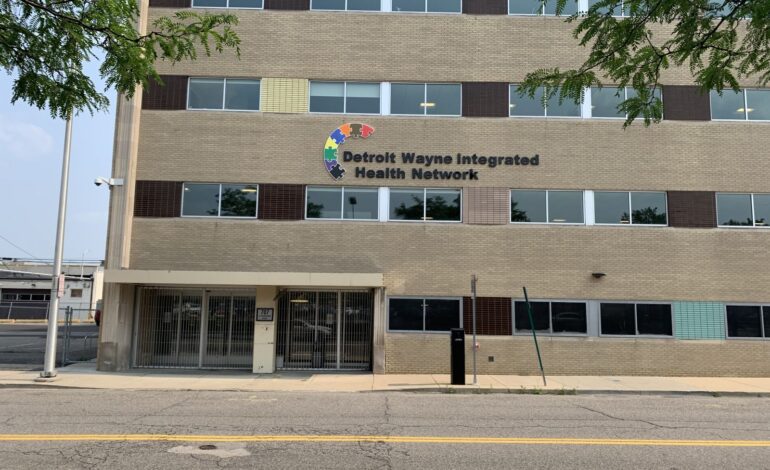DETROIT — As part of Governor Whitmer’s FY’22- ‘23 budget that was just signed, the Detroit Wayne Integrated Health Network (DWIHN) was awarded $45 million to build a comprehensive regional transformative behavioral health campus in Detroit. The new 120,000 square foot care center facility will help address disparities in health access and equity in Metro Detroit and has garnered strong bipartisan support in Lansing.
“This is a landmark day for DWIHN; finding solutions to mental and behavioral health crises is at the core of what we do and our goal is to have the greatest impact on as many people as possible,” said Eric Doeh, DWIHN CEO. “We have now been given this amazing opportunity by the state to provide a comprehensive array of services for medical, dental, mental health and substance use services, in addition to a 24-7 walk-in behavioral health crisis services center. This is hugely significant.”
The DWIHN worked with Wayne County, the city of Detroit, state legislative leaders, community members and our law enforcement partners to develop a creative solution to the ongoing mental health crisis. This facility would serve Wayne County and adjacent communities through a public private partnership which is located on West 7 Mile Road between Southfield and Evergreen, with access to major roads and freeways to conveniently serve residents and vulnerable populations of Wayne, Oakland and Macomb counties.
“The conversation about the state not having enough crisis beds has been ongoing for years,” Doeh said. “The availability of a 24-hour walk-in crisis assessment center is critical. We know that Wayne County needs multiple crisis centers to decrease the impact of the stress on hospital emergency departments (EDs) and the outcomes of behavioral health consumers utilizing EDs for non-emergent, behavioral health needs.”
The Behavioral Health Campus will provide:
-
Medical, dental, vision and pharmacy services for persons of all ages
-
Mobile transportation services to appointments
-
24-7 Walk-in Crisis Assessment, Treatment, Community Services Coordination
-
24-hour mobile and telephonic clinical pre-admission review and disposition determination
-
Adult community-based face-to-face Mobile Crisis Stabilization
-
Children’s crisis intervention and assessment services
-
Placement services for all levels of care requiring pre-authorization for payment, including Inpatient, Crisis Residential, SUD detox/residential and transitional housing placements.
The timeline for construction is anticipated to begin in early 2023 with plans to start servicing people in 2024.






Leave a Reply